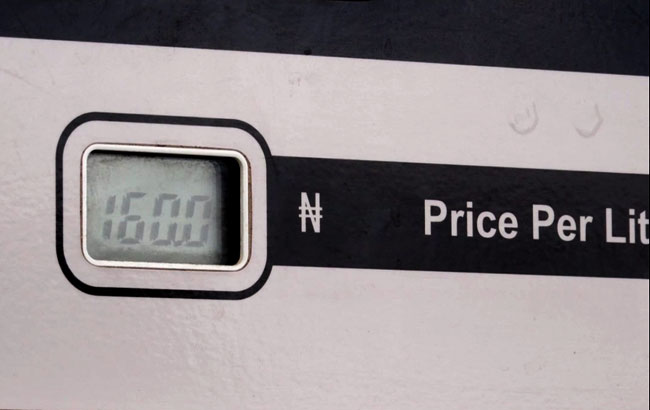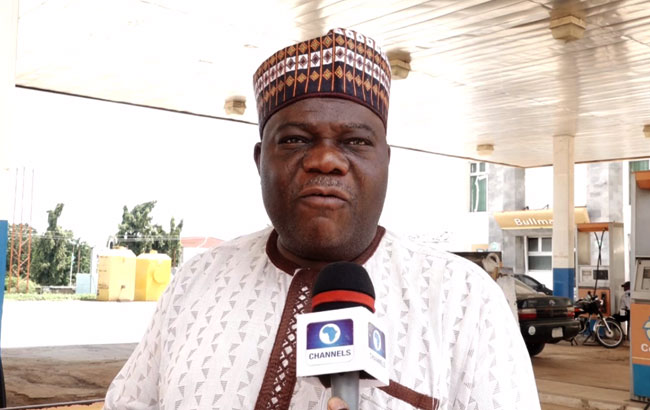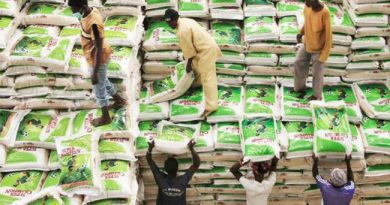Petrol Hike: Get Ready To Pay N200 Per Litre (See Details)
Based on the APC led Federal government style of monthly price increment on the Premium Motor Spirit (PMS), otherwise known as petro, Nigerians should be ready to pay N200 or more before the end of the year.
The reality of the news that the price of petrol is now hovering between N160 to N162 per litre.
It dawned on Nigerians on Thursday morning, after filling stations and independent marketers adjusted their retail pump price from N148 to between N160 and N162 depending on location.
The Pipelines and Product Marketing Company (PPMC), a subsidiary of the Nigerian National Petroleum Corporation (NNPC) informed marketers and stakeholders of the new adjustment to the ex-depot price on Wednesday.
According to the memo, the new ex-depot price took effect from Wednesday, September 2, 2020, but did not state the Expected Open Market Price of the commodity.
Nigerians woke up to a swift price adjustment by retail petrol outlets across the country, despite the PPMC and the Petroleum Pricing Product Regulatory Agency (PPPRA) saying that the adjustment did not necessarily amount to an increase in price.
Increases will Cause More Problem
The new price of petrol has gained lots of reactions from Nigerians.
Channels Television gathered that most petrol stations have already implemented the new price on their pump and sold to consumers.

In Niger State, a PMS consumer, Titus Tijani lamented bitterly, the impact the increase will have on other commodities.
He stressed that the country is already battling to tame inflationary pressures and the rising price of petrol due to the deregulation of the downstream sector, will adversely have an impact on the populace.
“This price of fuel will affect a lot of things, it will go far into the market and it will make life more unbearable; we are crying that things are bad; it is going to move from bad to worse now.”
Another consumer, Hussaini Mohammed, who bought about four litres of fuel at N600 said he had nothing to say and the government can do what they feel is good.
“We produce the fuel here and we are buying at a very high price, but with the latest increase, I have no comment, whatever the government feels it is good, they should go ahead and do it, I am disappointed with the present government.”
In Abia State, Channels Television observed that most petrol stations sold their product at N164 per litre.
The residents complained that the price change has caused transport fare to also increase while warning on the impact on the populace.
Also in Kaduna, filling stations have adjusted their pump prices, selling the product at between N150 and N161 per litre.
Most of the filling stations in the state capital had adjusted their pump price immediately after the ex-depot increase was announced even despite having old stock in their storage tanks.
DPR – The Regulator For Quality And Quantity
One major concern by most people has been the possible tampering of pumps by petrol stations and the Department of Petroleum Resources (DPR) has explained that their role in the new price regime is to ensure that petrol quality and quantity are not altered.

Speaking with Newera News on Thursday, the Controller of DPR in Niger State, Abdullahi Jankara, explained that after going around the state to observe the adjustment, as regulators, they are to ensure that consumers get quality for their money.
He, however, said that they cannot shut down any filling station for now, until a clearer directive is issued from the agency’s authorities.
“We woke up and saw that people are selling between that up to N162. We are going round to check to see the leverage between the ex-depot price and what people are selling and I know before the end of the day, we will get a clear directive from our agency, until then, we cannot close any station for now.
“The highest we have seen is N162 and there are a few selling at N160, so the public has the leverage to go to where there is a lower price for now and our position is that if you’re selling one litre at N160, you must be giving the customer the exact litre, and we have to ensure the quantity and quality of the product, we don’t have to mortgage on that,” he stressed.
Mr Jankara added that “we as a regulator, we are to ensure that the quantity is accurate and the pumps are efficient and it delivers exactly what they are to deliver.”
However, in an interview with Channels Television, an independent petroleum marketer, Benjamin Omale, explained that the pump prices were adjusted to reflect realities of the increase of ex-depot prices by PPMC, a situation which he laments is not good for the industry and the general economy.
“We have been facing a lot of serious challenge, most especially when the Federal Government introduced price regime and price modulation in line with international best practice.
“The downstream sector has not been very comfortable with this, because sometimes, products are being affected in transit and customers get scared when the price is either down or up and that really is not favourable because it doesn’t make our business stable and sometimes they cut supply and it gives way for people to hoard products and creates panic and this is very negative in a business setting and we don’t know what the government wants to achieve but for now, with the recent increment of price, it will really affect the economy when things are very difficult for the masses,” he lamented.

The petroleum marketer maintained that for this to work, the country needs to be refining its petroleum product and the impact will be less on the masses.
He stated that the country is blessed with enough crude oil and if properly harnessed, Nigeria can be a major exporter of petroleum products which will boost revenue earnings for the country.
“To avoid all of these, if the refineries can be put in shape; we are blessed with crude oil and if the refineries are functional, we will have a steady fuel supply at a low price and we can generate income and makes the price cheaper.
“We put a lot of money to invest and then the margin for marketers is becoming narrow and it’s not good for petroleum industries.
“For now, it’s going to be harsh on the poor masses and huge on the independent petroleum marketer and all major stakeholders because the value of the product has increased and then the turnover is meagre, so it’s not a good thing for us now,” Mr Omale stressed.
Downstream Deregulation Will Be Difficult For Nigerians, But Better
The Federal Government had announced the removal of subsidy payment on petroleum products, signalling the beginning of deregulation of the downstream sector of the oil industry.
The Minister of State for Petroleum, Timipre Sylva, has been speaking on the deregulation of the downstream sector; most recent is a briefing he had on Thursday following the new price guidelines.
Mr Sylva maintained that the current price of petrol is a reflection of the global crude oil price.
He explained that the Federal Government spent trillions of Naira on subsidy in a year, adding that the high cost forced the government to allow market forces to determine the prices of the product.
While stating that the FG no longer fixes the price of petrol, Mr Sylva admitted that the deregulation policy will be difficult for Nigerians to be bear but it will be better in the long run.
The minister also revealed that the government is not planning any kind of policy to cushion the effect of the deregulation, but is creating alternatives which include liquefied petroleum gas by the end of September.




